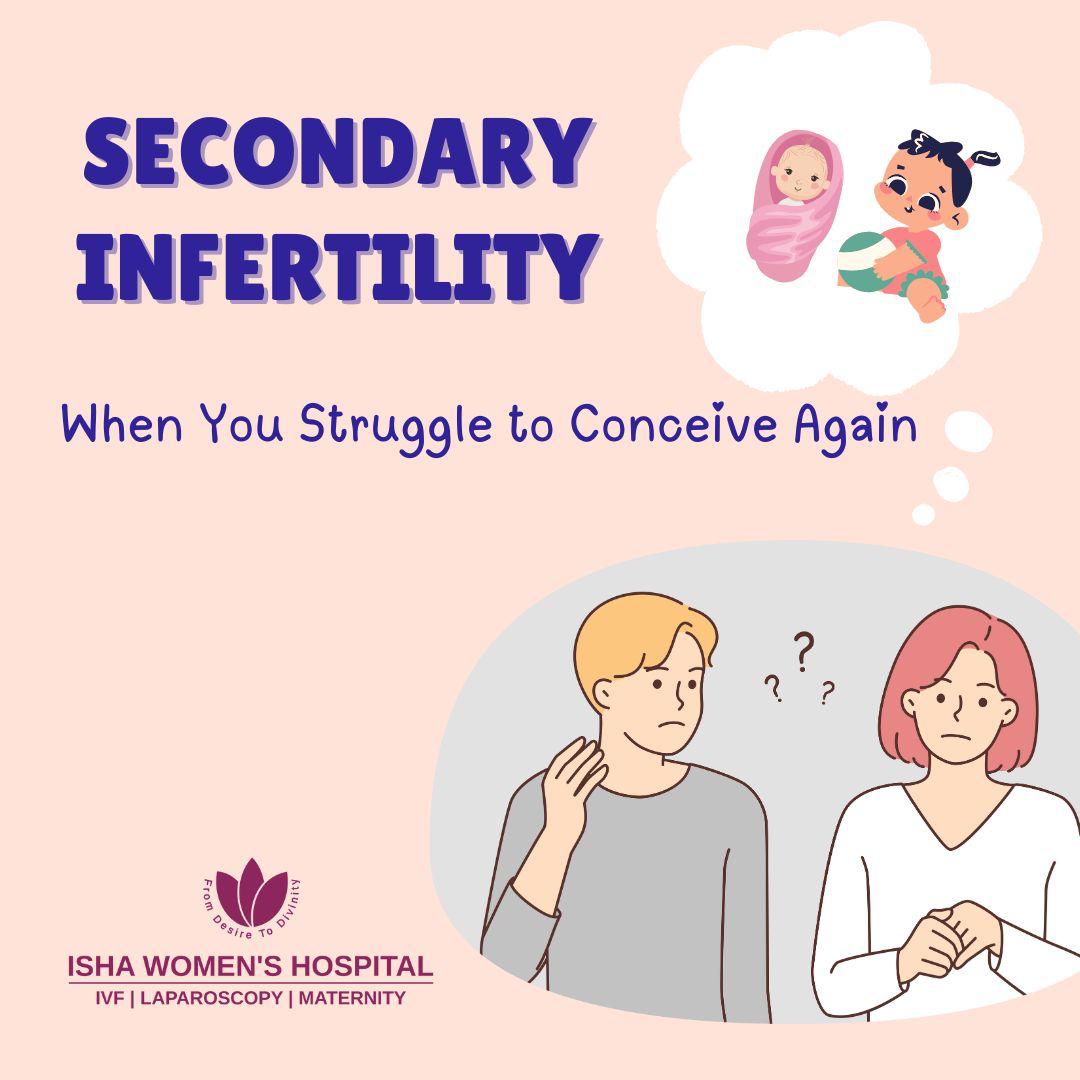Secondary Infertility: When You Struggle to Conceive Again

What is Secondary Infertility?
Common Causes of Secondary Infertility
- Age-Related Fertility Decline
- Women’s fertility naturally decreases with age, especially after 35, due to a decline in both the quality and quantity of eggs.
- Male Factor Infertility
- Sperm count, motility, or quality can diminish over time, even if the male partner had no previous issues.
- Complications from Previous Pregnancy or Delivery
- Scar tissue, infections, or other complications from earlier pregnancies can impact fertility.
- Lifestyle Changes
- Factors like significant weight changes, smoking, excessive alcohol consumption, or increased stress levels can reduce the chances of conception.
- Emerging Medical Conditions
- New or undiagnosed conditions such as endometriosis, polycystic ovary syndrome (PCOS), or thyroid imbalances can affect fertility.
- Structural and Reproductive System Issues
- Conditions like uterine fibroids, blocked fallopian tubes, or a low ovarian reserve may hinder conception.
When to Seek Help?
Diagnosing Secondary Infertility
- Comprehensive Medical Review: A detailed assessment of your medical and reproductive history to identify risk factors.
- Fertility Testing: Hormonal blood tests, ultrasound scans, semen analysis, and specialized imaging techniques to assess the health of your reproductive system.
- Tailored Treatment Plans: Depending on the diagnosis, our treatment options range from lifestyle modifications to advanced fertility techniques like intrauterine insemination (IUI) and in vitro fertilization (IVF).
Frequently Asked Questions (FAQs)
Answer: Secondary infertility refers to the inability to conceive or carry a pregnancy to term after previously giving birth without assisted reproductive technology. It can be just as emotionally challenging as primary infertility and affects both women and men.
2. What causes secondary infertility?
Answer: Common causes include:
- Age-related decline in fertility
- Hormonal imbalances (e.g., thyroid issues, PCOS)
- Fallopian tube damage or blockage
- Uterine conditions (like fibroids or adhesions)
- Male factor infertility (reduced sperm count or motility)
- Lifestyle factors (weight gain, stress, smoking)
Even if conception happened easily before, new or evolving issues can affect future fertility.
3. When should I see a fertility specialist for secondary infertility?
Answer: Consult a specialist if:
- You’re under 35 and haven’t conceived after 12 months
- You’re over 35 and haven’t conceived after 6 months
- You’ve had multiple miscarriages
- Your menstrual cycle is irregular or painful
Early evaluation improves your chances of successful treatment.
4. How is secondary infertility diagnosed?
Answer: Diagnosis involves a complete evaluation of both partners, including:
- Hormonal blood tests
- Ultrasound and pelvic exams
- Ovulation tracking
- Semen analysis for the male partner
- Imaging tests (like HSG) to assess fallopian tubes and uterus
5. What are the treatment options for secondary infertility?
Answer: Treatment depends on the cause and may include:
- Lifestyle modifications (diet, exercise, stress reduction)
- Ovulation induction with medications
- IUI or IVF if natural conception isn’t successful
- Surgical treatment for uterine, tubal, or male factor issues
At Isha Women’s Hospital, we offer personalized fertility care to help you expand your family with confidence.
Conclusion
Under the expert guidance of Dr Chinmay Pataki, one of the best fertility specialists and gynaecologist in Thane, Isha Women’s Hospital, holds the pride of delivering world-class fertility care through a compassionate team and customized treatment plans. Secondary infertility doesn’t have to stand in the way of your family’s happiness. With the right guidance and treatment, your dream of growing your family is within reach. we are dedicated to making parenthood a reality for every couple.
Schedule your consultation today at Isha Women’s Hospital and let us help you overcome secondary infertility with confidence. Together, we’ll bring hope and joy back into your parenthood journey.
